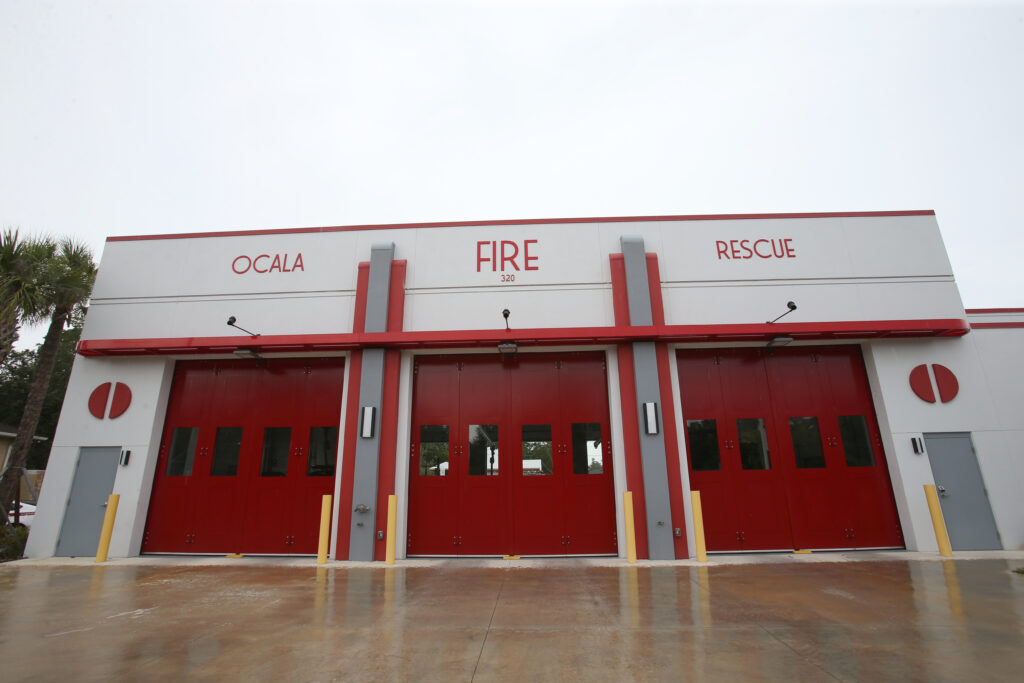Ocala Fire Rescue’s Ocala Recovery Project is finding success four months in

Local first responders believe they are better equipped to deal with an expected deluge of overdose victims in the closing weeks of 2020 and early 2021 due, in large part, to the fledgling Ocala Recovery Project that debuted in August. [Bruce Ackerman/Ocala Gazette]

Local first responders believe they are better equipped to deal with an expected deluge of overdose victims in the closing weeks of 2020 and early 2021 due, in large part, to the fledgling Ocala Recovery Project that debuted in August. [Bruce Ackerman/Ocala Gazette]
If history is any indication, Ocala firefighters and police will be responding to more drug overdoses in the coming weeks.
“As we cycle into the holidays, people aren’t in school, they’re not at work, they’re missing their family members,” Ocala Fire Rescue Chief Shane Alexander said recently. “There are cycles where when we go into the holidays, our overdoses and our overdose deaths increase.”
Opioid overdose data compiled by the Florida Department of Health for 2019 illustrate that point in grim detail.
Marion County reported 52 non-fatal opioid overdoses in the first nine months of 2019 but a whopping 138 in the final three months of the year, according to state health officials .
But local first responders and medical workers believe they are better equipped to deal with the expected deluge of overdose victims in the closing weeks of 2020 and early 2021 due, in large part, to the fledgling Ocala Recovery Project that debuted in August.
The Recovery Project aims to help recurring overdose patients, new and expectant mothers and others kick their addictions with a combination of medical interventions, outpatient treatment, inpatient treatment and counseling .
It was Ocala Fire Rescue’s Community Paramedicine Program, which started in April, that cleared a path for the Ocala Recovery Project to get kickstarted, however.
The Paramedicine Program focuses on what Alexander refers to as “frequent flyers” in the emergency room.
AdventHealth Ocala, which funded the Paramedicine Program, provides OFR with a list of 15 “frequent flyers” each Monday. OFR then constructs a plan to keep the patient from having to dial 911 for 30 days.
Often, the “frequent flyers” are people with chronic illnesses such as congestive heart failure and chronic obstructive pulmonary disease, of COPD.
Illnesses aren’t always the culprit, however.
Alexander said one of the Paramedicine Program’s participants is an illiterate resident who can’t read his medicine bottles. As a result, a paramedic visits him weekly to help map out his daily dosage.
Frequently, the culprit is overdose. And that’s where the Ocala Recovery Project comes in.
The Paramedicine Program qualified the Marion County Health Department to obtain a $250,000, three-year grant from the Centers for Disease Control and Prevention’s Overdose Data to Action program.
The grant helps fund a partnership with AdventHealth and local addiction recovery facilities that tries to steer people with addictions into comprehensive treatment programs
Fire Rescue Capt. Jesse Blair, who leads the Ocala Recovery Project, said that, historically, paramedics revive overdose victims with Narcan, an opioid-blocking drug, then transport them for further treatment. By the time the ambulance arrives at the hospital, however, the patient is fine and often is released without receiving further treatment.
But now, under the Ocala Recovery Project, those patients are screened at the hospital by Blair and a representative of LifeStream and then sent to the treatment facility that best suits his or her needs.
“We make contact with most of those patients,” Alexander said. “We have a champion in Captain Jesse Blair. We assign him in charge of that program, along with the Community Paramedicine Program, and it has really exploded and evolved and brought to the forefront all the issues of why we’re having an opioid crisis in the Ocala area.”
Alexander said that in 2019, there were 2,000 protective custody orders but not one person was treated. Instead, they were getting “cut loose” and not referred anywhere.
In the four months since Ocala Recovery Project debuted, by contrast, 150 people have been referred for treatment.
“The program is highly successful for our current capabilities,” said Alexander. “We are trying to grow our capabilities so that we can meet the overall issue. We have to be here to serve. Testimonials from people whose lives have been changed is the number one priority. And that’s occurring.
“The second part for me is about being proactive,” Alexander added. “If we know where these pockets of people are that we can reach out to them ahead of them and get them help, then that’s another piece of success for me.”
If you or someone you know is struggling with addiction, you can reach the Ocala Recovery Project at 352-266-4769.





